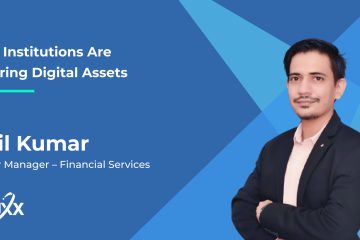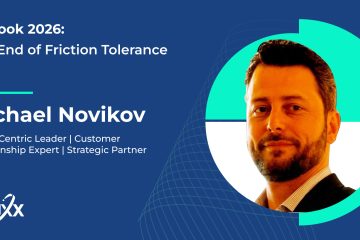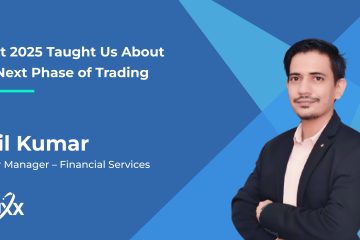In our modern world, we have many ways to simplify our lives. Technology can help us with the results instantly or aid us in our day to day activities. Technology has made the impossible; possible. Humans are lucky enough to have this to assist them daily. It has been part of every industry we have known. It makes medicine to financial sectors work better and faster.
However, with technology, particularly with online transactions or storage of data, security is always a crucial problem that needs to be addressed. Technology may have found ways to simplify things, but it has also put forth a series of challenges in terms of some ways to simplify the life of cybercriminals too.
We are going to take a look at the cybersecurity threats or risks that are often encountered in the financial data aggregation industry.
WHAT IS FINANCIAL DATA AGGREGATION?
We have too many accounts, such as bank accounts, investment, credit cards, insurance, and more. With all of these, it is difficult to maintain or check them separately. It is a time-consuming task. Therefore, financial data aggregation institutions come into play.
Financial data aggregation will put all together your financial records in one place. You can now see information from your various accounts in one place. There is no need to log in individually to each account. However, these institutions can only put all your information in their system if you will provide them with your login credentials such as username and password. The practice of placing all your information in one place is time-efficient, but it also has risks.
RISKS OR PROBLEMS IN FINANCIAL DATA AGGREGATION
Cybersecurity threats
The biggest problem that can occur in data aggregation is the possibility of hackers or cybercriminals getting into the institution’s database. Data aggregation companies store customers’ data in a single system. If a hacker gets into the system, this would be a problem. Moreover, if these institutions created vulnerable mobile phone apps, this could also pose a risk to their customers. Hackers can use this as a gateway to the system. Cyber fraud, unauthorized transactions, and identity theft are the biggest risks that consumers might encounter when using data aggregation.
Some companies practice safety measures to keep their customers’ information secure. However, some don’t consider this. Even though they implement ways to keep the data safe, sometimes data breaches can occur. If this happens, it will compromise all of a person’s identity.
Disruption of Financial Institutions’ Server
Cybersecurity threat is the biggest problem standing between financial data aggregation and consumers. However, there are other problems that do exist too. Technical difficulties can be experienced by both customers and banks due to data aggregators. Data aggregators who scrape accounts daily to update their clients’ dashboards can disrupt a financial institution’s website. If a data aggregation company has millions of users refreshing their page, this could cause problems to banks’ websites because of the increase in traffic coming in.
An increase in the traffic will slow down a bank’s server, causing problems for other customers who wanted to access their data. An additional problem with this is that banks cannot identify if the login attempts were conducted by hackers or by data aggregators. One minor issue encountered by users of data aggregation is the problem of receiving sales recommendations. If a financial data aggregator is affiliated or sells a product like investment or insurance, they could send sales or pitch sales to their clients.
We now have a clear picture of what risks or problems we might encounter when trying to use data aggregation. Therefore, we should be responsible when handing out our important data to a third party.
WHAT TO DO BEFORE HANDING OUT INFORMATION TO DATA AGGREGATORS?
If you want to manage all of your accounts in one place, you first have to determine the company’s policies. You have to ask questions or find out what a company offers before giving your data to them.
Read all the company’s terms and policies. It is crucial to do this because you have to know what happens to all of your information. Find out or read reviews about the company you are planning to share your information.
Know if they do screen scraping of information instead of using the Application Programming Interface (API). API is much safer as clients don’t have to share their usernames and passwords. Know if once you terminate your contract, what would the company do with your information. Are they going to delete every detail or store it?
- Do they have a security system to protect their clients’ data?
- What would they do in case of a data breach? Will they cover the clients’ loss?
- Will they share your data with other parties?
Knowing what your data aggregation company will do and how they run their business is your right as a client. Data aggregators and financial institutions must be transparent with their customers. They must lay down all the rules for their clients to know.
Although technology has already advanced its course, there are still ways industries can encounter cybersecurity issues. That is why data aggregators, financial sectors, every industry, and even the clients must practice safety protocols when it comes to online transactions.
These industries can implement practices to ensure there is a secure way to retrieve data through the use of security software, or by educating clients when doing online transactions, and thereby better relationships with financial sectors and data aggregators.
AUTHOR BIO
John Ocampos is an Opera Singer by profession and a member of the Philippine Tenors. Ever since, Digital Marketing has always been his forte. He is the Managing Director of Tech Hacker. John is also the Strategic SEO and Influencer Marketing Manager of Softvire, Australia. You can reach him here.


